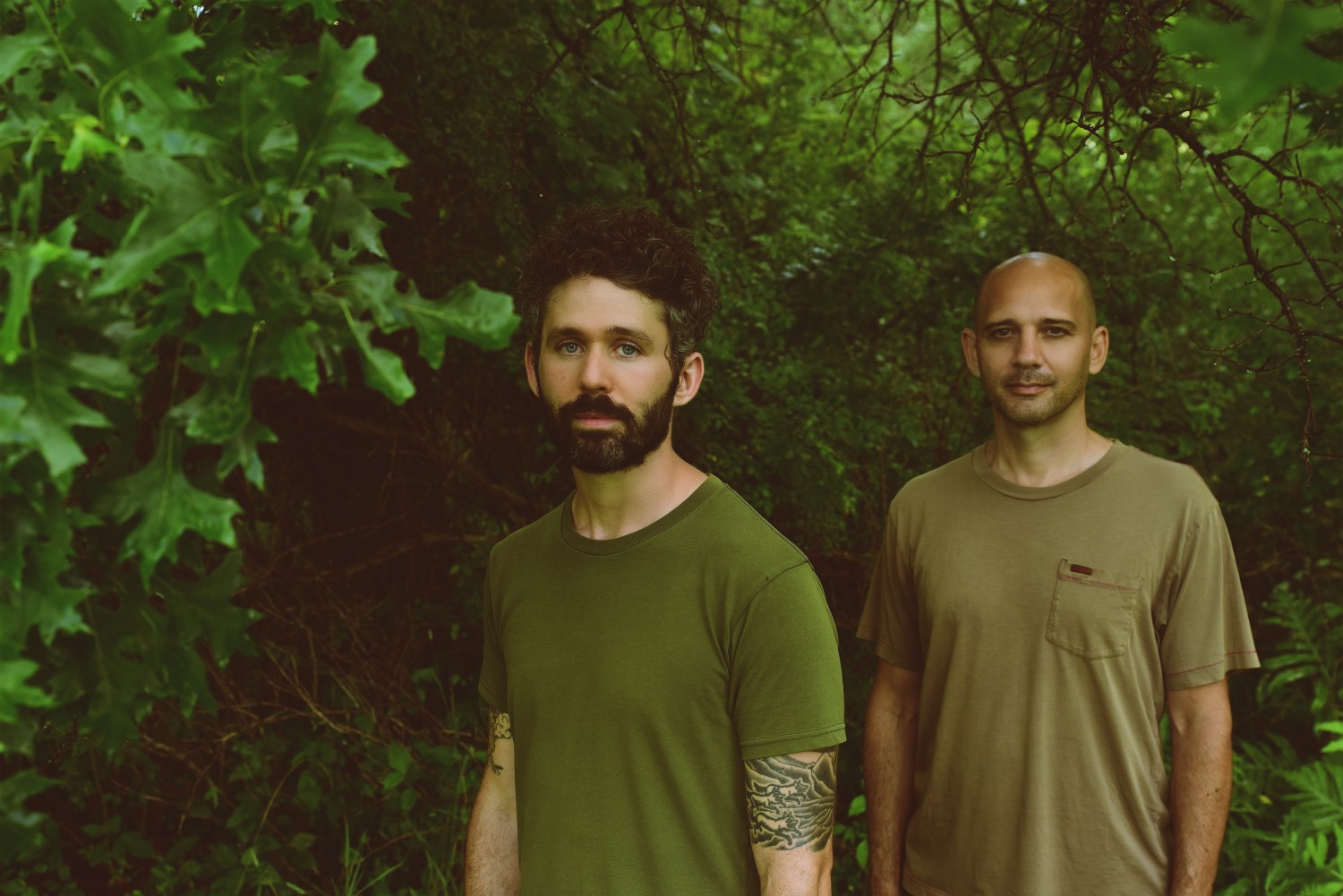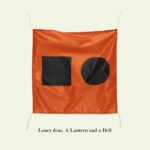Dreamy, expansive indie rock act The Antlers are releasing their first album in seven years on 26 March. Recorded over a four year period ‘Green to Gold’ follows a tumultuous period for the founder and primary force of the project Peter Silberman. We spoke with him to find out more about the upcoming record and the context surrounding it.
Is there a way you usually feel before the release of a new record?
The weeks leading up to releasing an album are always strange and I tend to forget that. The review sites start to get hold of the material. My mind is doing battle with itself and I wonder why, then I remember this is a high intensity moment. I have to remind myself that most people have not heard it yet, which is always the thing about finishing something long before its release, you instantly feel like it’s been made available, even though only a handful of people have heard it. It’s funny, because of the state of things right now, I’m not heading out on the road and a lot of the signifiers of a release are not there.
Was there any crossover with writing and recording this album and lockdown conditions?
They butted up against each other. I was writing and recording up until lockdown in March 2020 which coincided with an unrelated house move from where I had set up the studio. We had to abruptly move which put an end date on the work. By the time I was set up in a new place it might have been hard to pick up where I left off. It was just about the right amount of time. We arrived in the new house and then straight after that, lockdown went fully into effect.
Green to Gold is a radically different Antlers album. It’s as thoughtful and well considered as we’ve come to expect but tonally breezy and bright in comparison to anything you’ve put together in the past. Was there a particular song that kicked off that way of writing?
The first track, ‘Strawflower’, was an idea that I had been kicking around for a long time. I wanted it to set the tone of the record. As you say, it was breezy and sunny sounding. I didn’t quite know how to do it but I wanted to make a record that felt like that. That stuck with me through writing the rest of the songs. I would ask myself whether things were getting too heavy. Though I didn’t feel inclined to write darker songs this time round. I knew they were always there if I wanted but it felt like a personal challenge to write something lighter this time.
Did you feel out of your comfort zone?
It felt pretty right. It was out of my comfort zone in the sense I had to keep myself from overthinking and overcomplicating it, but once I gave myself permission to write something that felt effortless, it became effortless. I allowed myself to go for easy melodies, easy chords and to not push it to be uncomfortable, full of tension or anxious. Once I started writing that way it flowed naturally. It helped that I was developing this more regular practice of song writing, rather than waiting for inspiration to come, I was showing up every morning putting in the time and seeing what happened. There was less self-editing and I was putting less pressure on myself which impacted how the album feels.
You couldn’t have known it when you finished the record but the timing worked out perfectly. Living in dystopian times we want utopian music. We’re not looking for more darkness.
I’ve thought about that. I don’t know what people need right now. They probably need both. Something that reflects what is so challenging about right now but also something that lightens the load – which is what I’ve arrived at this time.
My gateway to you as a musician was in 2017, through your solo album Impermanence. I was struck by its gentleness and how it managed to do a lot with a very small array of sounds. It was weeks after hearing this release that I learned of your terrifying experience with extreme, thankfully temporary, hearing issues, which resonated with me as a musician with tinnitus. Did writing a record under those potentially stifling, restrictive conditions and stripping away some of the fundamentals of your sound help push you to deliver something so different on Green to Gold?
I think it did. I was forced to adhere to some parameters for Impermanence. Parameters can be a helpful creative tool, in terms of narrowing your infinite options. Despite it having much fewer components it was very difficult to make. There was nowhere to hide which is challenging when you have a background in making densely orchestrated albums. I missed my usual ability of building a textural mass. It was very exposed, mostly guitar and vocals. I went into the recording sessions having practiced it like crazy and hoping to knock it out in single takes, which proved incredibly difficult. Not necessarily because the songs were challenging, but because there is a pressure when things are being played delicately and there was no room for error. Going into this album, I didn’t want to make a “loud” record, but I also didn’t want as many rules . I wanted to have fun, enjoy the process, layer things on top of each other, arriving at that textural mass again and taking the pressure off.
I love the way, on tracks like ‘Just One Sec’, the music sounds as if it is flowing out of you effortlessly before eventually spinning into ambience. Do you plan the ambient sections during the song writing process or are they decided upon once you start recording?
Those sections are often a product of having ample time to work on an album. Those come later in the process mostly. I give myself permission to work with ambience when I can see that the songs are up on their feet and recorded for the most part. I like to give myself time to experiment and create the connective tissue between songs. A lot of the time it is a matter of looping, or sending things through delays, different processing, various types of sound treatments. I intentionally blocked off time to do that with this record. I love that quality on other albums. Those are the things that if I ever rush the recording process, I wish I had more time to do. They are a gift I give myself in the process for putting in the hard work on song, all that stuff is just fun. I think it makes the end result stronger but it is the easiest stuff to jettison if you run out of time.
Between Impermanence and this latest record you were struck with an entirely different set of problems when you were diagnosed with lesions on one of your vocal chords. This demanded medical attention and you stepped back from music. As someone whose identity is presumably so closely linked to being a musician, how did you find divorcing yourself from this part of yourself for some time?
It was a little disorientating. I have a generally positive attitude that I’ve developed over the years in reaction to obstacles. I tried to determine whether there was a way I could still work without singing. I did a lot of instrumental music, got into scoring. I started a story which didn’t end up coming together. I looked at it as an opportunity to diversify what I do. It coincided with me feeling a little burnt out after coming off of touring Impermanence and not being sure what to do next. Taking a full stop seemed like a valuable thing. I might not have done it if I was not forced to.
I don’t believe in fate or signs, but it must have felt bizarre having a second experience like this as a musician, like the world is trying to stop you from doing what you love.
I had exactly those thoughts. I try not to read into these things as fate, I don’t know if I believe in that either. Though it is hard to not feel like these are signs from the universe to change course. On occasions I think it’s coincidence, or karma. My hearing issues were partially brought on by me not protecting my hearing. My vocal cord issues were brought on by me not taking good care of my voice. I started to recognise that there were consequences to a lack of self-care and that if I was to continue down this path I would need to take better care of myself.
You said these songs were primarily written in the morning hours, which sounds wonderful, can you talk me through the routine you had with writing this LP?
Unlike in the past, I didn’t have any grand concepts going into writing. I wasn’t even sure I wanted to make a record but I knew that making music is an important part of who I am and that I should keep doing it. I needed to find a way of ritualising it. I had been doing that with exercise, diet, meditation, yoga – ritualising it was a good way of tricking myself into making music again. It occurred to me that the morning felt like a very pure time to me, before outside forces started to influence me. There is a raw, pure, sacred feeling in the morning that feels conducive to creative work. So in the morning I’d get up, do my stretches, have some breakfast, walk the dog, do a little journaling or reading, then go into the studio and see what comes out. I would spend a few hours writing, not too long. I’d play the long game and stop when I felt like things were flowing rather than when I was depleted. I like to think this helped me sustain the practice because I wasn’t exhausting myself. I worked every day, building this habit, then quitting while I was ahead. Having some small victories early in the day set the tone for the rest of it.
I understand that you took the approach of recording drummer Michael Lerner as the starting point for these songs. How did the two of you arrive at this?
That was around a time when we were not sure we wanted to make an album, but we just wanted to make music together. Michael would come up to visit every so often. I had set up a studio space which had enough room to fit both my studio and a drum kit. It felt like a good opportunity to play together again, so we just saw what ideas came out. It made it easier for me to start, I had a writing prompt from his patterns. He is a very creative and melodic drummer. I could never anticipate a pattern he would come up with. That part of the process was inspiring and full of surprises. It was really helpful for me to have a beat to play along to. A bad or boring beat can ruin a song, so I am blessed that Michael and I have gotten to work together for so long.
Other than the clearly major addition Lerner, is there any difference between an Antlers album and a solo release going forwards?
That’s a good question. I think in some ways Impermanence could have been an Antlers album but at the time it was important to me to do it outside of the project, to do something on a smaller scale with lower stakes. Moving forward I don’t think there are any hard and fast rules, what I love about the project is that it can stylistically shift but there is an intangible quality to it that makes it recognisable. I love the challenge of thinking “how different can we make it, whilst still being ourselves?” I’m not sure what form it will take next or what it will sound like but I’m working on a bunch of new music right now. I don’t think most of it is a huge departure, but you never know how these things turn out.
I was listening to your first album the other day, and even on that one record there are wild differences in terms of what Antlers is from track to track.
Is that Uprooted?
Yes. This new album, lyrically, is different from what came before. Like the music, it is extremely comfortable, effortless and warm hearted. I’d love to understand your process with writing lyrics and whether this has altered with the change in style.
With some of the earlier albums, they were so long ago, I don’t remember what, if any process I had. I look back at those albums and I know what they are about but I don’t have any memory writing them. For Familiars and Impermanence I got in the habit of making notes for myself any time something came to me. I also got into a process of constant revision and re-wording things to make them make sense after the first outpouring. On Green to Gold there was less revision as what was coming out was more simple to begin with. The story I wrote which never came to fruition was complicated and elaborate. That story was catching all of my complicated ideas and the more direct ones were making their way into the lyrics. This time round I wasn’t making notes around the clock, because of my routine, but I would set aside time to play songs on the acoustic guitar and shoot out some lines. If they felt true I would keep them and try and work them in but also not try and cram them all into one song, or one album. I used to be concerned with saying absolutely everything on each record and not leaving any stone unturned. This time round I felt more comfortable leaving some things off the page. It didn’t make the album more difficult to understand, I was just trying to show more than tell.
Perhaps a random question to end on, but based off of the track titles from Impermanence, have you practiced Buddhism?
Yes, I became interested in Buddhism whilst we were working on Familiars. By the time I got to Impermanence it had become a regular fixture of my life, a practice and worldview. It helped me inform what I was writing about on that album, the idea of change and the law of nature. It was a lens through which I understood the shifting nature of life and difficult challenges arising out of the blue. I was explaining them as change. Change is what happens and you can’t prevent it, you can’t avoid it, you have to learn to dance with it. I think in a less explicit way these themes have made their way on to Green to Gold. I found myself reading less Buddhism but it has become integrated into who I am and the way I see things. Writing an album about change in nature, parallel relationships, is quite a Buddhist idea but there are fewer overt spiritual references in this album which was intentional.
Given how you come across on your records, all of that makes complete sense. I’m glad I asked!
Green to Gold is out on 26 March via Transgresive.
Antlers photo credit: Shervin Lainez




